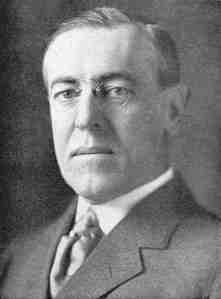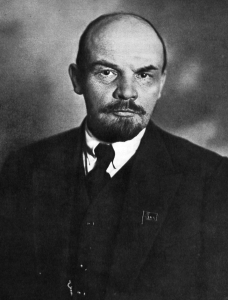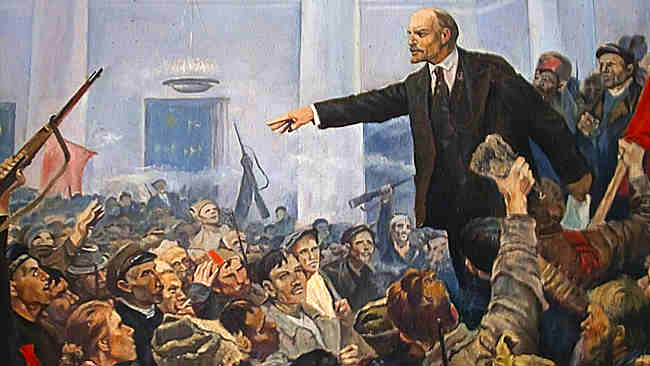Let us not forget what our Lord Jesus Christ said ‒ there would be rumors of war (WWI) but we should not be troubled because it is only the beginning of adversity and not yet the end. “Nation will rise against nation, and kingdom against kingdom. There will be famines, pestilences, and earthquakes in various places.” Let’s find out its fulfillment in historical events.
In June 1919, the peacemakers summoned the representatives of the new German Republic at the palace of Versailles. The Germans were required to sign a treaty created by the Allies; the delegates were terrified after reading the document. The treaty stated that the German nation must bear all the blame for the outbreak of the war! A part of the document stated:
“The Allied and Associated Government affirm, and Germany accepts, the responsibility of Germany and her Allies for causing all the loss and damage to which the Allied and Associated Governments and their nationals have been subjected as a consequence of the war imposed on them by the aggression of Germany and her allies.”
The treaty imposed a large amount of reparation for the German Republic on the damages caused by the war. The reparation covered not only the damages, but also the pensions of millions of widows of the Allied soldiers and their families. The amount of reparation that Germany had to pay was over $30 Billion.
Other clauses of the treaty aimed at undermining Germany’s military force. Germany was also ordered to return Alsace and Lorraine to France. They also took out several hundred square miles of territory from western and eastern Germany, and sequestered their colonies overseas.
There was nothing that the Germans could do, they were compelled to sign. However, their resentment at the Treaty of Versailles poisoned the global climate for 20 years. It caused the outbreak of a more bitter and fiercer war.
A group of new nations arose, which at one time were subjected to the empires of Germany, Austria-Hungary, and Russia. Those countries belonged to the Baltic states of Lithuania, Latvia, and Estonia. Poland regained its independence after 100 years of slavery under foreign rule.
Three new republics: Czechoslovakia, Austria, and Hungary, arose at the heart of the old Habsburg. In the Balkans, the peacemakers created a new Slav state, Yugoslavia, which is dominated by Serbia. Nevertheless, eastern Europe remained a center of conflict.
Europe’s colonies in Africa, Asia, and the Pacific looked forward to the Paris Peace Conference with high hopes. Many people in these countries fought alongside the Europeans during the war. Due to this, people from these colonies hoped that their rights would be given consideration; that imperial rule would end and they would gain their long desired independence.
However, the leaders in Paris enforced a principle of “self-determination” only in selected parts of Europe. Outside of Europe, the victorious Allies further expanded their colonial empires overseas. The treaty created a territorial pact governed by the Northern Powers. Britain and France were granted power to take over the German colonies in Africa and the Ottoman territories in the Middle East. Citizens of the colonial countries resented the action of the peacemakers. They felt fooled and deceived.
The Germans were not pleased with the outcome of the Peace Treaty. Even Italy was outraged because they did not acquire all the lands stated in their secret treaty with the Allies. Japan also objected to the Western nations’ refusal to concede to them all the territories they were claiming in China.
Russia, who was not involved in the peace negotiations, was bitter with the re-establishment of Poland and three independent Baltic states on the lands that had once been part of the Russian Empire. All the dissatisfied nations were just waiting for the right time to amend the mistakes brought about by the Treaty of Versailles.
One of the deepest concerns of many people was the establishment of the “League of Nations”, which was supposedly to ensure world peace. Its members of more than 40 nations were to discuss problems that would arise instead of resorting to war in solving them.

Wilson of the United States was at the forefront of its establishment, which was one of the 14 points he laid out in the Treaty of Versailles. However, to the great surprise of many, the United States itself was not a member of the League of Nations! Critics from all over the world raised their brows when the treaty was not ratified by the United States Senate. Whatever their underlying motive was, the United States kept to itself but still took part in managing the world’s affairs. One of Wilson’s closest advisers wrote, “Looking at the conference in retrospect, there is much to approve and much to regret.”
In truth, as witnessed by the world, the United States suffered the least from the first World War because they participated only near the end of the war. Due to this, they led in industry and in agriculture around the world, and were able to financially help European countries to rise from the difficulties caused by the war.
Critics, especially historians, have their own opinions that the reason United States chose to stay out of the League of Nations was because many of its citizens feared that they could be caught in prospective wars. And so, during the “roaring twenties”, the so-called “boom” and “Great Depression”, the United States appeared at the forefront of international diplomacy.
Communism in the boom years of the 1920’s was ineffective. Meanwhile, the people of America enjoyed the benefits of capitalism. Their homes were full of appliances ‒ from radios to refrigerators and cars. Most Americans agreed with President Calvin Coolidge’s slogan, “The business of America is business!” Therefore, business, business, and business was the motive of the United States in their actions and deeds. Even war was turned into profit!
Let us find out then, what effect did the war and the Treaty of Versailles had on the countries caught in the war, especially during the “Great Depression”. In 1919, three democratic countries in the north ‒ Britain, France, and the United States ‒ were deemed to be in power. They presided over almost the entire peace meeting in Paris. However, after the war and the Treaty of Versailles, the countries, especially those in Europe, would be facing worse problems.
One of their biggest problems was the search for jobs for returning war veterans and the rebuilding of their homes and war-torn lands. Likewise, many countries were heavily indebted as a result of the war. The truth was, even before the end of the war, the economic crises had caused a great deal of disorder in societies, and the radical spirit became popular as it had been in the Russian Revolution in 1917. Communism spread due to the popular belief in Russia that socialism was the answer to poverty. Let’s focus first on the Russian Revolution.
In March 1917, the Russian monarchy collapsed because of the hardships caused by the war, insufficient food, and shortages of fuel. In St. Petersburg (later Petrograd), workers rallied. The citizens marched out in the streets, (most of them women) shouting “Bread! Bread! We need bread!“
Lenin founded and led the revolutionary socialists in Petrograd and in other cities. They set up soviets or councils of workers and soldiers. They initially cooperated with an interim government established after the removal of the Russian czar. Later, they launched a revolution.

Born in 1870, Lenin, whose real name was Vladimir Hyich Ulyanov, came from a middle class family. He was 17 years old when his older brother was arrested and executed for his involvement in the plot to assassinate Alexander III. Bitter resentment against the Czarist rule was instilled in Lenin’s heart. In his youth, he read the works of Karl Marx and attended student demonstrations. He spread the Marxist principle to factory workers along with some socialists and Nadezhda Kruspkaya, the daughter of a poor but noble family.
Because of this, Lenin and Kruspkaya were arrested and sent to prison in Siberia. In prison, the two were married; and when they were released, they exiled themselves to Switzerland. There, they spread the revolutionary ideals untiringly.
A rival once wrote of the sincerity of Lenin’s ambition to stage a revolution in Russia.
“There is no other man who is absorbed by the revolution 24 hours a day, who has no other thoughts but the thought of revolution, and who, even when he sleeps, dreams of nothing but the revolution.”
When he was in Russia, Lenin tried to adapt the Marxist principle to the conditions of their country. It was Marx’s belief that industrial workers will rise to overthrow capitalism. However, in Russia, the “proletariat” or “small” was not the majority, so Lenin gathered the upper class and established the “Dictatorship of the Proletariat”. Although his revolutionary party consisted only of a small percentage of the populace, he called the group “Bolshevik”, which means majority.
The revolution in Russia lasted for three years.
On December 16,1920, a strong earthquake struck Haiyuan, Ningxia, China wherein 200,000 people died. The Lijunbu-Haiyuan-Ganyanchi area was completely destroyed. About 73,000 people died in Haiyuan Country. A landslide buried the village of Sujiahe in Xiji County. More than 30,000 people died in Guyuan County. Almost all of the houses in Longde and Huining collapsed and were destroyed. The destruction occurred in seven provinces and regions, including the major cities of Lanzhou, Taiyuan, Xi’an, Xining, and Yinchuan. It was difficult to describe the damage caused by the earthquake.

In 1921, the Bolshevik who renamed themselves as “Communists”, defeated their enemies. Although Lenin succeeded, Russia was still in chaos. Millions have died since the outbreak of World War I. Pestilence and diseases were widespread. The economy was devastated. Lenin was facing massive rebuilding of his country.
One thing that puzzled the Western allies of Russia was the reason why Lenin accorded peace with Germany and withdrew from war in March 1918. He yielded vast territory, including its people; soldiers on the battlefield were recalled. Lenin signed the Treaty of Brestlitovsk. What they did not know was that in March 1917, when Lenin was still in exile, Germany saw in him an opportunity that could weaken Russia. Germany helped the leader of the Bolshevik to return to his homeland.
Aboard a sealed train, the Bolshevik leader travelled from Germany to the Russian border. On April 16, 1917, Lenin disembarked from the train in Petrograd. He was met by fellow activists who had been released from the Czar’s prison. From then on, the Russian revolution under Lenin’s leadership intensified.
During the first year of Lenin’s rule in Russia, he was busy preventing a civil war. Once his power as Russia’s leader was firmly established, he returned to his main goal — the establishment of a classless society, wherein production will be in the hands of the people. But in reality, Lenin did not achieve his “Marxist goal”.
In 1922, the Bolshevik otherwise known as the “Communists”, created a constitution that was a hybrid of democracy and socialism. It created an elected legislature, later called the “Supreme Soviet”, and granted all citizens, from 18 years and above, the right to vote. All political powers, indigenous wealth, and productions belong to the workers and peasants. But in truth, the communist party was the dominant power.
Lenin’s unexpected death in 1924 created a power vacuum and fierce competition among the Communist leaders. The two leading contenders were Trotsky and Joseph Stalin. Trotsky was a wise man who held Marxist ideals, a great speaker, and an architect of the Bolshevik Revolution. Meanwhile, Stalin was the opposite. He was not very well-spoken nor a scholar, but he was fond of political stratagem and was always behind it. After the bloody and complex events, Stalin dominated and ruled Russia.